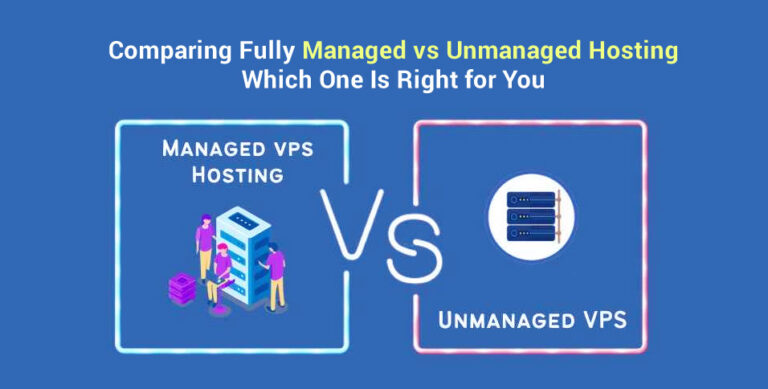Are your employees tired of cold leftovers or scrambling for fast-food lunches between meetings? Picture this: it’s 12:30 PM, and instead of a chaotic lunch hour filled with unhealthy choices or skipped meals, your team gathers around for a delicious, freshly prepared meal delivered right to the office. Sounds like a dream, doesn’t it?
Corporate meal delivery services are quickly becoming the go-to solution for modern workplaces. From startups to large corporations, more businesses are embracing these services to boost morale, improve productivity, and keep their teams fueled with nutritious meals.
In this guide, we’ll dive into the compelling benefits of corporate meal delivery services and provide practical tips to seamlessly introduce them into your office routine. Whether you’re looking to elevate employee satisfaction or simplify lunchtime logistics, this is your ultimate resource to get started.
What Is a Corporate Meal Delivery Service?
A Corporate Meal Delivery Service is a convenient solution that provides fresh, delicious, and professionally prepared meals directly to your office. These services cater to businesses looking to simplify lunch logistics, enhance employee well-being, and create a more enjoyable work environment.
Here’s how they typically work: You choose a provider, select a menu or meal plan that suits your needs, and schedule regular deliveries. Some services allow employees to individually select their meals, while others offer pre-designed menus for the entire team.
What makes these services truly valuable is their level of customization. Companies can tailor meal options based on dietary preferences, allergies, and even cultural considerations. Whether your team needs vegan, gluten-free, or protein-rich meals, corporate meal delivery services ensure that every employee feels included and satisfied.
Types of Corporate Meal Delivery Services
Not all corporate meal delivery services are created equal, and it’s important to choose the type that aligns with your office’s needs. Here are the main categories:
1. Catered Meals for Events
These services specialize in providing meals for company events, such as meetings, team-building activities, or celebrations. Whether you’re hosting a morning brainstorming session with breakfast platters or an afternoon workshop with a full buffet, catered meal services ensure your team stays energized throughout the event.
2. Daily Employee Lunches
For workplaces aiming to offer consistent meal options, daily corporate lunch deliveries are an excellent choice. These services ensure employees can count on fresh, healthy meals every day, eliminating the need for last-minute takeout or skipped lunches.
3. Subscription-Based Meal Plans
Subscription services are perfect for companies seeking long-term solutions. Businesses pay a fixed fee for meals delivered on a regular schedule, making it easy to budget and maintain a reliable food program. These plans often come with added perks, such as discounted rates and the ability to adjust meal preferences over time.
By understanding these options, you can select the right type of corporate meal delivery service that best fits your company’s needs, whether it’s occasional catering or daily sustenance for your hardworking team.
The Benefits of Using a Corporate Meal Delivery Service
Discover how corporate meal delivery services can transform your workplace, boosting productivity, enhancing culture, and keeping your team fueled with healthy, delicious meals.
Improved Employee Productivity
A well-fed team is a productive team. Nutritious meals provide the energy and focus employees need to power through their workday. Instead of the mid-afternoon energy slump caused by unhealthy snacks or skipped meals, a balanced lunch helps maintain steady concentration and efficiency.
The convenience of corporate meal delivery also eliminates the need for employees to spend time figuring out lunch plans, rushing out for food, or waiting in long lines. With meals delivered directly to the office, employees can dedicate more time to their tasks, leading to increased productivity across the board.
Enhancing Workplace Culture
Providing meals is more than just a perk—it’s an opportunity to build stronger connections within your team. Shared meals or communal lunch breaks foster collaboration, spark casual conversations, and create a sense of camaraderie among employees.
When companies invest in meal delivery services, it sends a clear message: “We care about your well-being.” This gesture can improve employee satisfaction and loyalty, contributing to a more positive and engaged workplace culture.
Healthier Meal Options for Employees
Corporate meal delivery services prioritize health and nutrition, offering balanced and customizable meal plans. Employees can enjoy meals tailored to their dietary needs, whether they require gluten-free, vegan, or high-protein options.
Compare this to the typical alternatives: fast food or vending machine snacks, which are often high in calories and low in nutrients. By providing healthier options, companies can promote better overall well-being and help employees maintain long-term energy levels.
Reducing Stress for Employees
One of the most underrated benefits of a corporate meal delivery service is stress reduction. The daily question of “What’s for lunch?” can become a source of frustration for employees, especially when they’re juggling deadlines or packed schedules.
By removing this decision from their plates (literally), employees can focus on their work without worrying about meal planning or preparation. This small change can make a big difference in their day-to-day experience.
Cost-Effectiveness for Employers
Corporate meal delivery services can actually save companies money in the long run. Compared to the expense of maintaining an in-house cafeteria or reimbursing employees for individual meal purchases, meal delivery services offer a streamlined, predictable solution.
Bulk ordering or subscription-based plans often come with discounted rates, further reducing costs. Plus, healthier, happier employees tend to take fewer sick days and perform better at work, offering an additional return on investment for employers.
By addressing both employee satisfaction and operational efficiency, corporate meal delivery services prove to be a win-win for modern workplaces.
Tips for Implementing a Corporate Meal Delivery Service in Your Office
Streamline lunch breaks and satisfy your team by following these expert tips to successfully implement a corporate meal delivery service in your office.
Assessing Your Office’s Needs
Before diving into corporate meal delivery, it’s essential to understand what your team actually needs. Start by evaluating your office size, employee demographics, and dietary preferences. Are there vegetarians, vegans, or individuals with specific allergies? Understanding these factors will help you choose a service that caters to everyone.
A great way to do this is by conducting a quick survey. Ask your employees about their food preferences, meal habits, and interest in corporate meal delivery services. Their feedback will not only help you tailor the program but also make them feel included in the decision-making process, boosting engagement and adoption.
Partnering with the Right Service Provider
Choosing the right meal delivery partner is critical for a seamless experience. When evaluating providers, consider the following:
● Menu Variety: Look for a provider that offers diverse meal options to cater to different tastes and dietary restrictions.
● Pricing: Compare costs to ensure the service fits within your company’s budget while delivering value.
● Punctuality: Timely delivery is key to ensuring meals don’t disrupt the workday.
● Sustainability: Check if the provider uses eco-friendly packaging or supports local, sustainable sourcing practices.
Take time to compare reviews and ratings online, or ask other businesses for recommendations. A provider with a proven track record of quality and reliability will save you headaches down the line.
Customizing Meal Plans for Your Team
Customization is a major perk of corporate meal delivery services. Employees will feel more valued when their preferences and needs are taken into account. Here’s how to make meal plans work for your team:
● Accommodate Special Diets: Ensure the provider can handle allergies, religious or cultural food requirements, and specific dietary needs like keto, gluten-free, or low-sodium options.
● Offer Variety: Rotate menus weekly or seasonally to keep things fresh and exciting without overwhelming employees with too many choices.
● Balance Health and Indulgence: Include healthy options for daily meals but also occasional indulgent treats to keep morale high.
Engage your employees in the planning process by offering them opportunities to vote on menus or suggest meal ideas.
Creating a Smooth Rollout Plan
Implementing a corporate meal delivery service successfully requires a thoughtful introduction to the team. Follow these steps to ensure a smooth transition:
- Trial Period: Start with a short trial phase to test the service and gather employee feedback. This will help identify any initial issues and fine-tune the program before fully committing.
- Launch Event: Organize a lunch-and-learn event to introduce the service. Provide sample meals so employees can get excited about the new program.
- Communicate Clearly: Share details about how the service works, including ordering processes, delivery times, and menu options. Use emails, posters, or team meetings to spread the word.
- Feedback Channels: Set up a system for employees to share their experiences and suggest improvements. This could be through anonymous voting, team meetings, or an online platform.
By starting small, gathering feedback, and gradually expanding the program, you’ll create a meal delivery service that becomes a valued part of your office culture.
Addressing Common Concerns About Corporate Meal Delivery Services
Address common concerns about corporate meal delivery services and discover practical solutions to make the transition seamless for your office.
Cost vs. Value
One of the biggest concerns companies face when considering corporate meal delivery services is the cost. While it’s true that these services require an upfront investment, the long-term value far outweighs the expense.
Providing meals for employees shows that your company values their well-being, which translates to higher job satisfaction, improved morale, and greater loyalty. Additionally, employees who enjoy nutritious meals during the workday are more focused, productive, and less likely to experience the afternoon energy slump caused by unhealthy eating habits.
Consider the indirect savings as well: fewer sick days, improved retention, and increased workday efficiency. When viewed holistically, the cost of corporate meal delivery is a strategic investment in your team’s overall health and productivity, ultimately benefiting your bottom line.
Managing Logistics
Another common concern is managing the logistics of meal delivery in a busy office environment. Fortunately, modern corporate meal delivery services are designed to minimize disruptions and ensure smooth operations.
Here’s how to address the most common logistical challenges:
● Scheduling: Work with your provider to establish consistent delivery times that align with your team’s lunch breaks. Many services offer flexible scheduling options to fit your company’s unique needs.
● Delivery Timing: Ensure that meals are delivered promptly and at the right temperature. Choose a provider with a reputation for punctuality and proper food handling practices.
● Freshness and Storage: For offices with limited kitchen space, select services that use insulated packaging to keep meals fresh. Additionally, providers can deliver individually packed meals to make distribution easier.
Effective communication with the service provider is key to resolving logistical concerns. Many companies also designate an internal point person to oversee the program and ensure everything runs smoothly.
By addressing these logistical concerns proactively, you can enjoy the benefits of a corporate meal delivery service without disrupting your office’s workflow.
Conclusion
Investing in a corporate meal delivery service is more than just providing lunch—it’s about creating a workplace where employees feel valued, energized, and connected. From boosting productivity and enhancing workplace culture to offering healthier meal options and reducing stress, the benefits are undeniable.
By carefully assessing your office’s needs, choosing the right provider, and addressing common concerns, you can implement a service that transforms your workplace dynamics. Not only will your team appreciate the convenience and care, but your business will also reap the rewards of a happier, more productive workforce.
Start small, gather feedback, and watch how something as simple as a well-planned lunch can make a big impact on your company’s success.
Also Read: 6 Stress-Free Tips for Meal Planning

















